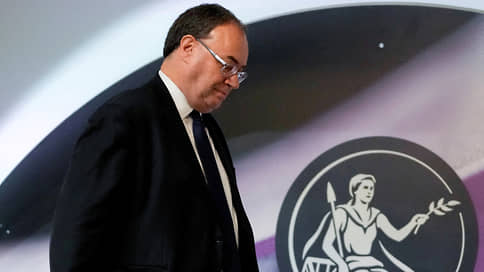The Bank of England made its bet
[ad_1]

The Bank of England on Thursday, following the US Federal Reserve System and the European Central Bank, decisively raised the interest rate – by 50 basis points at once, to 1.75% per annum. This was the most significant increase in the indicator over the past 27 years. In this way, the regulator is trying to curb inflation, which, according to the new forecast, will accelerate to 13.1% in the fourth quarter. The rate has been raised amid the approaching recession of the British economy – the Bank of England expects that it will begin to shrink in the last quarter of this year and that the recession will last all of 2023.
The base interest rate of the Bank of England on Thursday was raised immediately by 50 points – up to 1.75% from 1.25% per annum. This is the most significant increase since 1995, and now the rate is also at its highest level since December 2008, when it was 2%. Such an increase did not come as a surprise to analysts. In June, annual inflation in the UK against the backdrop of accelerating gas prices has already reached 9.4%. Two weeks ago, the head of the Bank of England, Andrew Bailey, said that the regulator would “act decisively.”
Together with the rate, the central bank raised its inflation forecast on August 4 – the figure will reach 13.1% in the fourth quarter of 2022 (this is 3 percentage points (pp) higher than the level that the regulator set in its May forecast). It is expected that further price growth will slow down and amount to 5.5% in 2023. It will fall to the target level of 2% in two years – in its forecast, the Bank of England proceeds from the fact that inflationary pressure will gradually weaken against the backdrop of stabilization of world commodity prices.
On Thursday, the regulator left almost unchanged the volume of repurchase of assets from the market – in total it will amount to £863.1 billion (£844 billion – government, and £19.1 billion – corporate bonds). Also, the Monetary Policy Committee of the Bank of England voted to start reducing the regulator’s balance sheet immediately after the next meeting, scheduled for September 15. This decision is not final, there will be another confirmation vote in September, the outcome of which will depend on market conditions. So far, it is known that the leadership of the British Central Bank plans to reduce the volume of bonds on the balance sheet by about £80 billion during the first 12 months of the program, which, taking into account the redemption of securities, will correspond to their sale by about £10 billion quarterly.
All these decisions were taken against the backdrop of the Central Bank’s announcement that the UK will enter a recession in the fourth quarter of this year, which will last 15 months.
This forecast is explained by the fact that the country’s GDP has already slowed down more than previously expected, amid falling real incomes, shortages of goods and labor. In the third quarter, economic growth will be only 0.4%, household consumption – 0.1%. In general, in 2022, the Bank of England now expects GDP growth of 3.5% (minus 0.25 percentage points compared to the May forecast) and its noticeable drawdown – by 1.5% – in 2023 (in May, only a decline was expected by 0.25%). After that, the economy expects “very weak growth by historical standards,” the regulator predicts.
On the eve of the British National Institute for Economic and Social Research (NIESR) in its forecast noted that a recession with a 50% chance will begin already in the third quarter (that is, earlier than according to the Bank of England’s calculations) and will continue until the first quarter of 2023 (growth at the end of the year is 0.5%), which is much shorter than predicted Central Bank. The fall in demand for goods and services, according to experts of the institute, will lead to the fact that in the next 12 months the unemployment rate in the UK will exceed 5% (in May it was 3.8%).
NIESR predicts that inflation will peak in the fourth quarter of 2022 (close to 11%) and then return to around 3% a year after peaking.
This will come against the backdrop of tightening monetary policy, a slowdown in energy price growth and a decline in real household incomes, which will fall by 2.5% in 2022 and remain more than 7% below the pre-pandemic trend even beyond 2026.
[ad_2]
Source link






